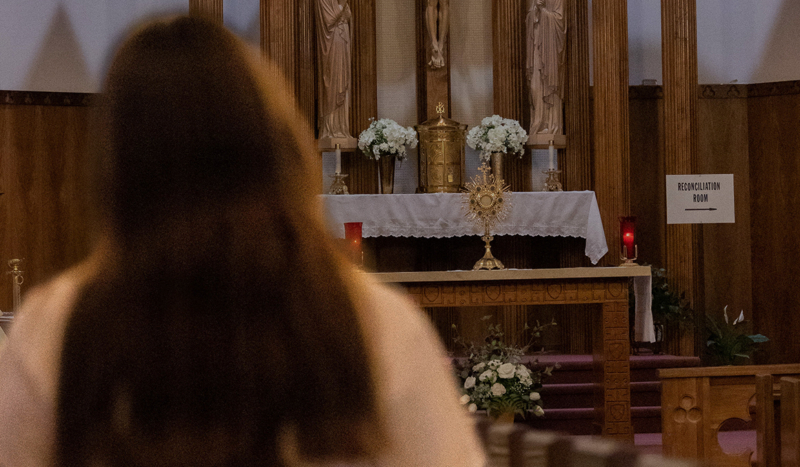
CV NEWS FEED // What does the future of the Church look like? Will the youth of the next generation step up to fill empty roles and keep the Church alive and thriving?
Dr. Philippa Martyr, a historian and researcher in Australia, is curious about those questions as well. To find the answer, she studied about 700 young Australian Catholics and divided them into two groups: those who go to Mass every Sunday (termed “weeklies”) or those who attend infrequently (known as “irregulars”).
Martyr reported the findings of her research on The Catholic Weekly after asking both groups questions on topics ranging from the morality of non-renewable energy sources to divorce. According to Martyr, the Catholics who attended Mass every Sunday were notably more aligned with the Church’s core teachings than the irregulars.
“After all, if you don’t believe that God is calling you to a close personal relationship with him through the sacraments, then Mass becomes a chore, so you don’t go as often,” Martyr wrote for Catholic Weekly. “And if you don’t really believe in what happens at Mass, then why believe a lot of other church teachings as well?”
Martyr reported that 61% of weeklies believe getting a legal divorce is a sin. However, only 26% of irregulars agreed that divorce is a sin.
According to Martyr, she also asked about “sins of affluence,” which are acts that could be seen as social injustices. In terms of the morality of using non-renewable energy sources, 11% of irregulars said that it is sinful, while only three percent of weeklies agreed.
In response to the question “Is it sinful to spend money on yourself without also giving to the poor?” almost 60% of weeklies said it is, but only 45% of irregulars concurred.
Martyr said she was a little surprised by the responses to “sins of affluence.”
“I thought the irregulars would be more interested in social justice, rather than getting hung up on sex. But it seems that the weeklies had slightly more sensitive consciences when it comes to the just use of money and possessions,” she wrote.
Martyr also asked about changing Church laws and teachings. Weekly churchgoers usually did not support proposed changes such as ordaining married men in the Western Church (16%), or ordaining women (6%). Even fewer supported changes condoning sexual immorality, such as giving Communion to cohabitating people (15%), giving Communion to divorced and civilly remarried Catholics (13%), approving contraception (10%), and allowing homosexual marriages (6%).
Martyr found that irregulars supported these changes more than weeklies, though not as much as she anticipated. She reported that 71% of irregulars wanted to give Communion to couples living together before marriage, and the same number wanted the Church to approve contraception.
Martyr ended the survey by asking young Catholics, “How much do you feel you are affiliated with the Church?” Ninety-seven percent of weeklies said “very,” and 71% of irregulars agreed with them.
The historian told CatholicVote that she is
encouraged by the fact that I found a sample of highly adherent, highly affiliated younger Catholics who haven’t yet been talked about much – either in the literature or in the Church – as a serious part of the future of the Church in Australia. I think they need to be heard and included in future planning in the Church much more than they are currently, because they have invested heavily in it, and they turn up every Sunday.
As for the future of the Church, only time will tell. But Martyr appears hopeful that the future Church will be closely aligned with its core tenents.

